|
There's always something new to see at WCHS properties! We've been working hard to present our ever growing collection in new and exciting ways!
The foundation for the Beedle Log Cabin has been dug and concrete poured. Currently, in progress at Harmon Museum, we're building and furnishing a Mid-Century Modern Apartment. Our Archeological exhibit received a face-lift and our pre-historic artifacts have been given new life with updated displays. The agricultural collection, in the Farm Heritage Gallery, has been thinned and organized to better showcase the items on display before rotating new items in from storage. And, we'll be able to welcome guests into it all through the Broadway entrance with newly redone front steps. Glendower Historic Mansion may be closed for the season but the upper floor's wings have been opened up to show the Maid's Quarters and Wash Room to better convey the life of those that also lived in the home. The newly renamed Armstrong Conference Center (the Old Post Office) has a wonderful sign along with the new Armstrong Gallery of Flight. This gallery is dedicated to the men and women, of Warren County, that made great strides in the frontier of the skies and above.
0 Comments
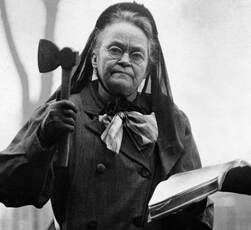 Carrie Nation: “Lebanon is The Vilest, Wickedest Town Of Its Size I Have Ever Been In.” by John Zimkus, WCHS Historian/Education Director Carrie Nation was a flamboyant temperance advocate, and one of the most famous women in America at the turn of the 20th century. She was colorful in her actions, almost always having a hatchet in one hand, and the Bible in the other. She was, however, not very colorful in dress, typically wearing stark black-and-white clothing. She was in many ways bigger than life. She stood 6 feet tall and weighed about 175 pounds. She was born Carrie Moore in Garrard County, Kentucky in 1846. She got the last name of Nation in 1874 when she married David A. Nation. He was her second husband and 19 years her senior. David was an attorney, as well as a minister. (He first husband was a young physician, Charles Gloyd. She left him after a few months of marriage because of his alcoholism.) Carrie Nation began her temperance work in Medicine Lodge, Kansas when she started a local branch of the Woman's Christian Temperance Union. On June 5, 1900, she felt she had received a heavenly vision. Responding to the revelation, Nation gathered several rocks — "smashers," she called them — and proceeded to Dobson's Saloon. Announcing "Men, I have come to save you from a drunkard's fate," she began to smash the saloon's stock of liquor with her stones. Carrie’s husband joked that she should use a hatchet next time for maximum damage. Nation replied, "That is the most sensible thing you have said since I married you.” The couple divorced in 1901. By that time, she was nationally known for her attacks on the “demon rum.” Between 1900 and 1910, she was arrested some 30 times for her "hatchetations," as she called them. Nation paid her jail fines with the money she earned from lecture-tour fees, sales of souvenir hatchets and hatchet pins, and photographs of herself. The sale of souvenir hatchets, at times, earned her as much as $300 per week. Carrie, because of her barroom destructive ways, was physically assaults numerous times. Many saloons across the country erected signs in their establishments with the slogan — "All Nations Welcome But Carrie.” In the fall of 1904, The Warren County Fair Association announced that “Mrs. Carrie Nation” would be a “Special Attraction” at the Warren County Fair that year. She was scheduled to speak at 2 p.m., on Wednesday, September 21, 1904, the second day of the four day fair. Lebanon’s Western Star newspaper, on September 22, reporting on her speech said that Carrie “at once grabbed a cigarette from the mouth of a youngster and proceeded into a short address in which she poured broadsides into the saloons.” It said the fairground crowd “jeered and hooted at her.” After her talk, Carrie traveled the quarter mile or so south to the heart of Lebanon. She “made a round of the business houses and saloons,” the village’s highest concentration of bars was on E. Mulberry Street in 1904. As she visited the area, she proclaimed the Bible “was her hatchet” on that day. Carrie Nation remained in Lebanon for two more days, leaving on Friday, September 23, 1904. According to The Western Star, “Carrie Nation’s opinion of Lebanon was not such as would give the town a good recommendation unless people will consider the source. She said, ‘Lebanon is the vilest, wickedest town of its size I have ever been in.’” The newspaper went on to say, “Carrie behaved so badly on the streets that the Marshal [Elmer E. Smith] finally ordered her out of town.” The paper then proclaimed, “She was voted not only a freak but a nuisance.” Carrie Nation’s visit to Lebanon, Ohio did not turn out all bad for her. It was estimated that she sold $100 worth of souvenir hatchets at 25 cents each. One hundred dollars in 1904 would have a buying power of about $3,000 today. Carrie Nation died in 1911, nine years before the 18th Amendment to the US Constitution went into effect on January 16, 1920. It prohibited the sale or manufacture of alcohol in the United States. Despite her campaign against the evils of liquor, some historians believe “the establishment of Prohibition was the efforts of more conventional reformers, who had been reluctant to support her.” She was such a dynamic force 120 years ago, that if the question was put of US citizens back then, or even today, “Which individual did the most to bring on Prohibition?” — I am sure, the answer overwhelmingly would be Carrie Nation. |
AuthorVarious staff and volunteer writers. Categories
All
Archives
June 2024
|
Email: [email protected]
Wchs Office/Harmon MuseumTues - Sat: 10am - 4pm
Year Round |
1795 BEEDLE cABINPhone for hours
Year Round |
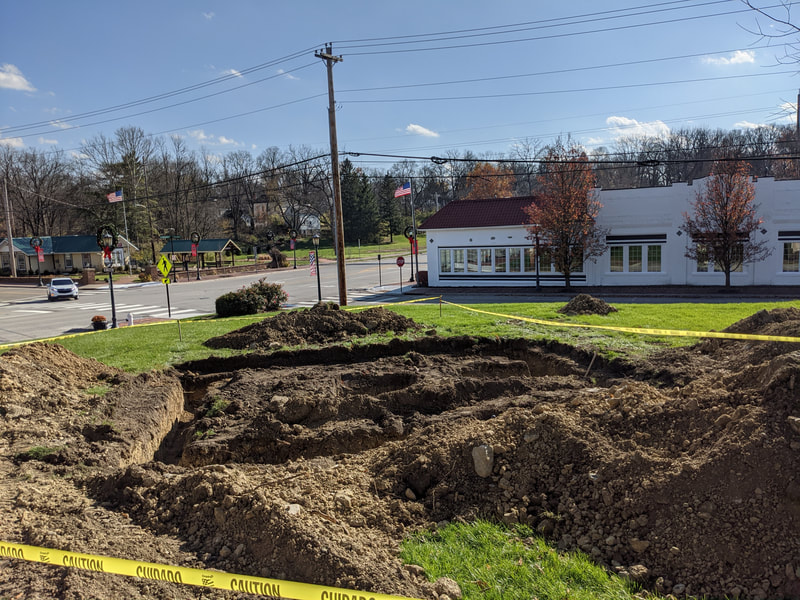
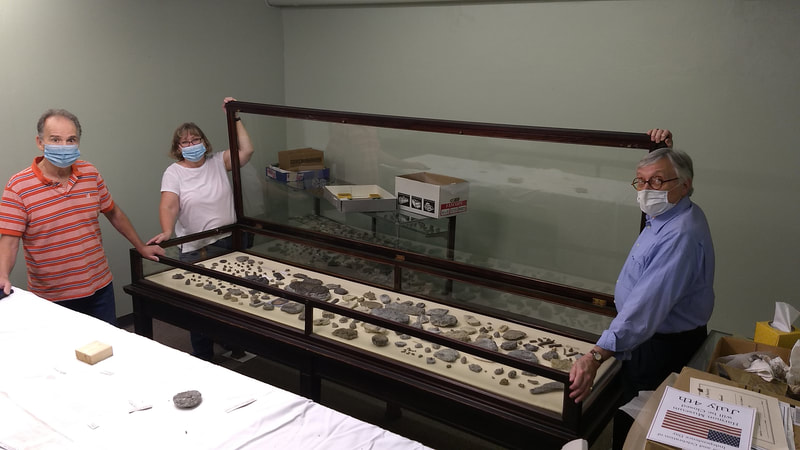
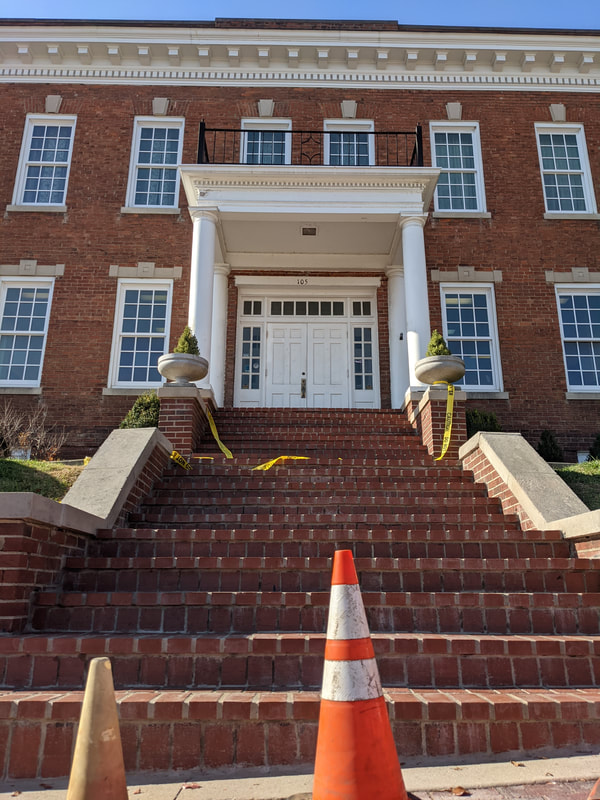
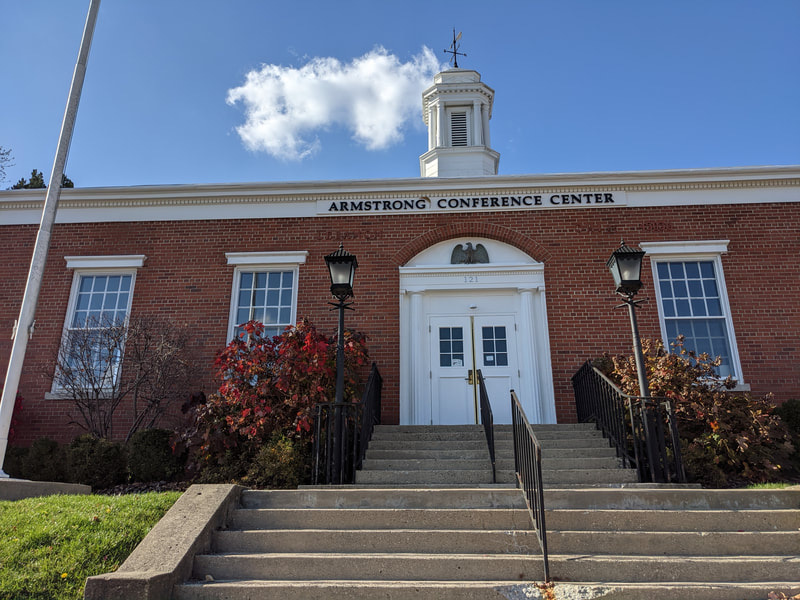

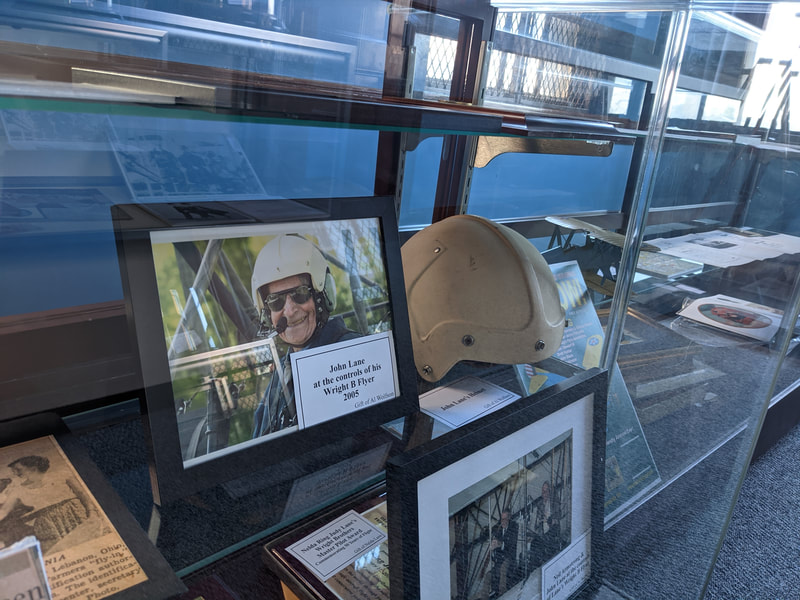
 RSS Feed
RSS Feed





